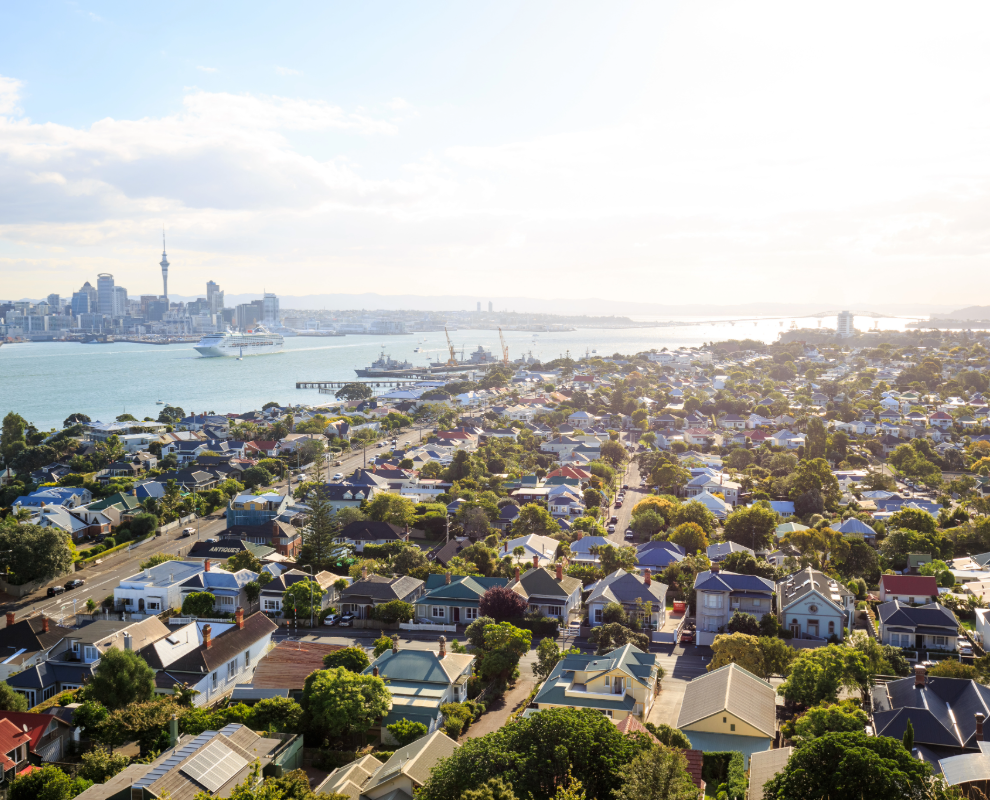This month, I thought it was well worth a specific look at housing patterns in Auckland. Values across the super-city have dropped by 6% from the ‘mini peak’ earlier in the year, larger than the nationwide fall of a touch less than 4%. What factors might help explain the extra weakness that seems to have emerged in Auckland’s property market?
Like the rest of the country, some key, common drivers stand out as restraints on Auckland. First, although mortgage rates are now coming down (pretty quickly), they’re still relatively high by past standards, and of course,, anybody who has previously fixed at higher rates won’t benefit from the current falls for a few months down the track.
Second, and related to that, housing affordability is still a significant challenge in Auckland (and elsewhere, too). Mortgage payments on a new loan currently absorb around 58% of the median household income in Auckland, about 10 points above its own average. Nationally, that figure is a touch lower at 54%, but still around 10 points above normal.
Third, the listing situation is firmly in favour of buyers – and that tends to weigh on prices. Total stock listed on the market available to buy is significantly higher than a year ago in most parts of the country (as new listings have risen but agreed sales at the other end of the pipeline have stayed low). Yet, Auckland is at the upper end of the spectrum, with a roughly 36% rise compared to a year ago – versus Canterbury, for example, with ‘only’ a 9% increase.
Part of that extra growth in listings across Auckland is undoubtedly the continued pipeline of new-build townhouses coming onstream. Indeed, in many ways, the NZ-wide construction upturn that ran until the middle of 2022 was an Auckland townhouse boom – and even though wider conditions have turned down for developers in the past two years, those new-builds previously consented are still flowing into Auckland’s stock numbers.
Of course, different market conditions can always favour one group over another, and first-home buyers are making the most of things at present. So far in 2024, FHBs have accounted for a record-high 26% of property purchases across NZ, but Auckland has been even better for this group – with a 28% share of activity in the year to date. Affordability is indeed more challenging in Auckland than elsewhere. However, FHBs are still finding a way – such as tapping KiwiSaver for at least part of the deposit, utilising the low deposit lending allowances at the banks, and being prepared to compromise on property type and/or location. On this point, the wider availability of new townhouses is playing into FHBs’ hands in Auckland.
On the flip side, mortgaged investors are quieter than normal regarding their purchasing activity nationally and in Auckland. But existing landlords aren’t running down their current holdings to any noticeable degree, and there are just some tentative hints that smaller ‘Mum and Dad’ investors might have started to become a little more active again, off the back of regulatory changes such as 80% mortgage interest deductions and reduced LVRs.Overall, buyer choice seems to be the factor weighing on Auckland a little more than the others, and the weakening labour market is a reason to be cautious about where house prices head in the next 6-12 months. I don’t expect a major second leg downward for values either nationally or in Auckland. Still, it’s also difficult to envisage a fresh interest rate-driven boom either, especially with the debt-to-income ratios rules out there on the horizon.

Kelvin Davidson
Kelvin Davidson is the Chief Economist of CoreLogic New Zealand.
















Add Comment